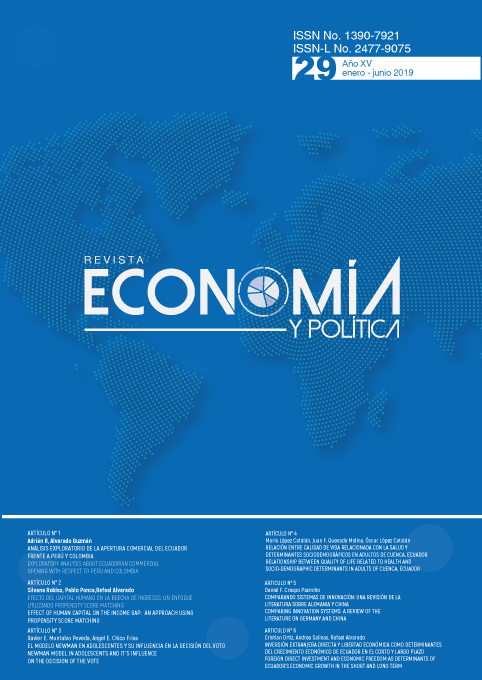Effect of human capital on the income gap: an approach using propensity score matching
DOI:
https://doi.org/10.25097/rep.n29.2019.02Keywords:
Income gaps, human capital, Propensity Score Matching, discrimination, labor formality.Abstract
The objective of the present investigation is to examine the income gaps in Ecuador through the method of Oaxaca (1973) and Blinder (1973) after using the Propensity Score Matching (PSM) method to obtain observations statistically equivalents. We use the data published by the National Survey of Employment, Unemployment and Underemployment of the National Institute of Statistics and Censuses (ENEMDU). The results obtained agree with the theory of Mincer (1974), schooling and experience influence positively in the levels of income, becoming schooling as the most determinant. Then, we break down income gaps by sex and labor informality. The results show that the wage gap also responds to differences in the human capital endowments of the labor force. Policies aimed at reducing income gaps should focus on improving the level of education of workers and generating scenarios for equal opportunities.
Downloads
Downloads
Published
How to Cite
Issue
Section
License
The Journal declines any responsibility for possible conflicts derived from the authorship of the works that are published in it.
The University of Cuenca in Ecuador conserves the patrimonial rights (copyright) of the published works and will favor the reuse of the same ones, these can be: copy, use, diffuse, transmit and expose publicly.
Unless otherwise indicated, all contents of the electronic edition are distributed under a Creative Commons Attribution-NonCommercial-ShareAlike 4.0 International License.






